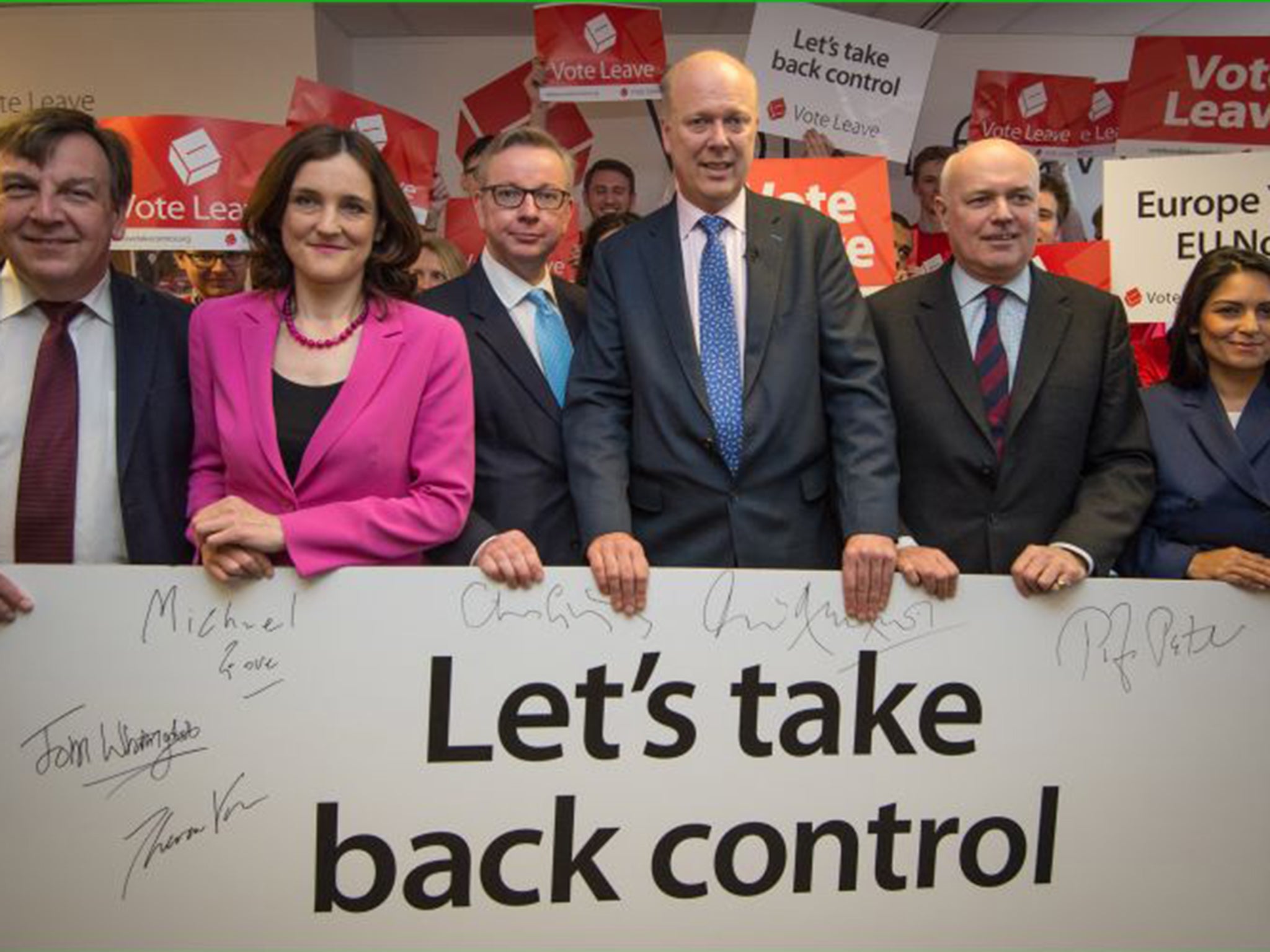Brexit Leave campaign 'stirred up' fears about immigration, says Boris Johnson’s deputy
Sir Alan Duncan also warns that ministers must ensure EU withdrawal is 'not a disaster'

Your support helps us to tell the story
From reproductive rights to climate change to Big Tech, The Independent is on the ground when the story is developing. Whether it's investigating the financials of Elon Musk's pro-Trump PAC or producing our latest documentary, 'The A Word', which shines a light on the American women fighting for reproductive rights, we know how important it is to parse out the facts from the messaging.
At such a critical moment in US history, we need reporters on the ground. Your donation allows us to keep sending journalists to speak to both sides of the story.
The Independent is trusted by Americans across the entire political spectrum. And unlike many other quality news outlets, we choose not to lock Americans out of our reporting and analysis with paywalls. We believe quality journalism should be available to everyone, paid for by those who can afford it.
Your support makes all the difference.Britain voted for Brexit because the Leave campaign “stirred up” people's concerns about immigration, says a minister in Boris Johnson’s department.
Sir Alan Duncan also warned that the Government’s job now is to ensure that EU withdrawal is “not a disaster” for the country.
The comments came just hours after Mr Johnson, the Foreign Secretary, hailed the “great Brexit deal” ahead and likened the process to liberation in the Second World War.
Mr Johnson and other leading Brexiteers have been keen to argue that voters wanted to restore democracy at home, summed up in the phrase “take back control”.
But, speaking in the US, his deputy said: “The manner in which the campaign was fought stirred up a lot of sentiment amongst people who were not habitual voters, particularly on the issue of immigration.
“You could feel blue-collar, urban, traditional Labour opinion going viral for Leave.
“They were stirred up by an image of immigration which made them angry and made them throw a bit of a tantrum.”
He said it was “one of the paradoxes” of the campaign that Boston, in Lincolnshire, had voted so heavily for Leave when the local agricultural sector was dependent on migrant workers from Poland.
“Lincolnshire folk if you like said 'Oh, they are coming to pinch our jobs'. Well, they wouldn't do the jobs themselves anyway so it was a slightly artificial anger,” he added.
Sir Alan, who is the minister for Europe and the Americas, said the Government was now trying to make the best of the result.
“We have to make the most of what we are now required to do by the referendum to try and turn it into an opportunity and not a disaster,” he told The Chicago Council on Global Affairs.
Sir Alan was also highly critical of the way the Remain campaign, led by David Cameron and George Osborne, had been fought which, he said, contributed to the outcome.
“The Remain campaign was badly conducted in that the then government under David Cameron and George Osborne very much hogged the campaign limelight and it didn't look as though the Remain argument put a vision of optimism,” he said.
"Nor did it appear a cross-party endeavour. That made elements of voting opinion treat it as a verdict on the government of the day which invariably creates anti feelings and that converted into votes. That I think explains part of the chemistry that led to the result.”
Join our commenting forum
Join thought-provoking conversations, follow other Independent readers and see their replies
Comments